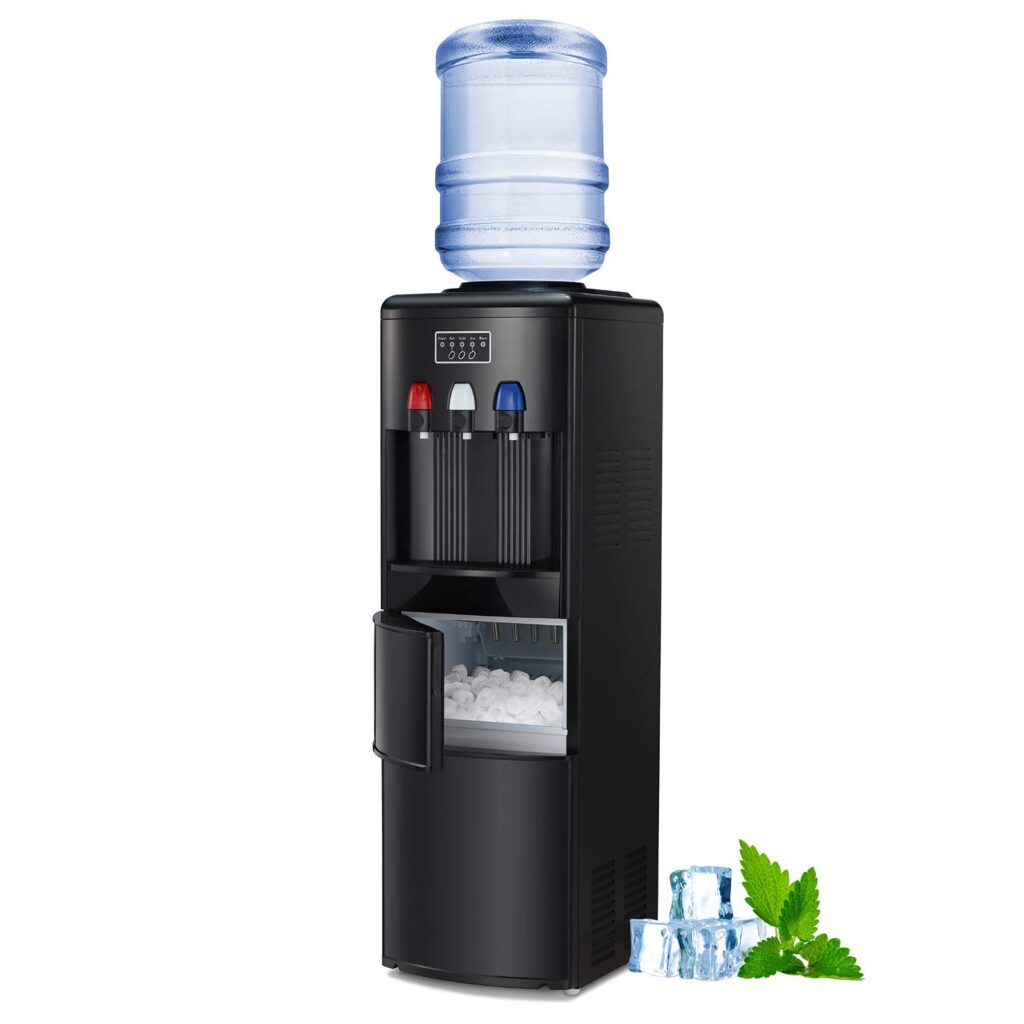As sustainability grows in importance for businesses and individuals, many are taking a closer look at the environmental impact of our everyday choices. One of these choices is how we consume water – specifically, whether we opt for bottled water or a water cooler. While both options provide clean, drinkable water access, they can have vastly different environmental impacts. This blog post will explore the ecological implications of bottled water and water coolers and how each option can impact the planet.
We’ll examine their manufacturing, transportation, and environmental impacts. We’ll also discuss the costs of each option and how they can affect individuals and businesses. By taking a closer look at the ecological impact of these two options, we hope to provide insight into how we can make more sustainable choices in our daily lives. Whether we’re making small changes at home or more significant decisions within our organizations, every effort matters as we strive to protect our planet for future generations.
The Environmental Impact of Bottled Water
The production and transportation of bottled water have a considerable environmental influence. The procedure begins with removing water from all-natural sources, such as springs or groundwater, which can affect the surrounding community. The water is then treated as well as packaged in plastic containers, which are made from petroleum, a non-renewable resource.
According to a study by the Pacific Institute, it takes 17 million barrels of oil to create the plastic containers used for bottled water in the USA every year. This process launches greenhouse gases into the ambiance and contributes to environmental modification. The transport of bottled water likewise includes the carbon impact, as the bottles are typically carried long distances to reach customers.
Plastic waste is one of bottled water’s most significant environmental worries. Plastic containers are not biodegradable and can take hundreds of years to break down in landfills. Additionally, numerous plastic bottles wind up in the ocean, harming aquatic life and contributing to the development of “plastic islands” in the sea.
The Environmental Impact of Water Coolers
Water coolers, additionally referred to as water dispensers, are another preferred means of accessing drinking water. These devices use electrical energy to cool down and give water, which can have a significant ecological influence. The power required to power water coolers contributes to greenhouse gas discharges, adding to environmental adjustment.
In addition, the production and transport of water coolers likewise have an ecological influence. The gadgets are made from plastic, steel, and digital parts, which need power and natural deposits. The transport of water coolers likewise includes the carbon impact, as they are commonly transferred across countries to reach customers.
The Impact of Water Coolers Vs Bottled Water
Eventually, it depends on the scenarios of each individual to determine whether bottled water or water coolers are much better for the setting. Utilizing a water cooler at the workplace might be far better than bottled water, as long as you’re using a multiple-use container. The same is true for people that are not able to make use of public drinking fountains as well as need to rely upon bottled or packaged water.
However, purchasing bottled water may be better for the setting if you only drink tap water or have access to public drinking fountains when away from home. It is specifically real if you can recycle bottles for various other purposes, such as cleaning or saving food, or if you have a recycling program in your neighborhood. If you want to buy bottled water, visit website to find out where you can purchase it without harming the environment.
Alternatives to Bottled Water Vs. Water Coolers
One more method to help secure the environment while still having access to tidy drinking water is to purchase a house water filter. These tools use filters and purification systems to eliminate contaminants and make faucet water much tastier, which might be a choice for individuals who do not prefer faucet water.
Water filters are much better for the setting than bottled water because they lower your carbon footprint. They also remove the need for transport over long distances, conserving energy and reducing greenhouse gas emissions.
One more choice for a recyclable canteen is to buy stainless-steel or glass drink containers. These sorts of containers are better for the environment than plastic bottles because they do not contain chemicals as well as do not seep into the water. They also end up being reusable with time, which can help reduce waste.
These options significantly benefit bottled water and drinking fountains as they need less power to generate and ship, lowering carbon emissions. Furthermore, by investing in a water filter or various other multiple-use water containers, you can minimize your mineral water usage, which will undoubtedly assist in safeguarding the setting.
Conclusion
Bottled water and water coolers are convenient means of accessing drinking water, but they come with a considerable ecological price. The manufacturing, transport, and disposal of plastic bottles contribute to climate modification and harm the atmosphere. Water coolers additionally call for power to operate and add to greenhouse gas discharges.
Fortunately, there are several choices offered that can help in reducing our environmental impact. Using a reusable canteen or installing a water purification system are easy and effective means to lower plastic waste and carbon discharges. For those that favor the comfort of a water cooler, environmentally friendly choices are available that use energy-efficient technology and minimize power usage.


